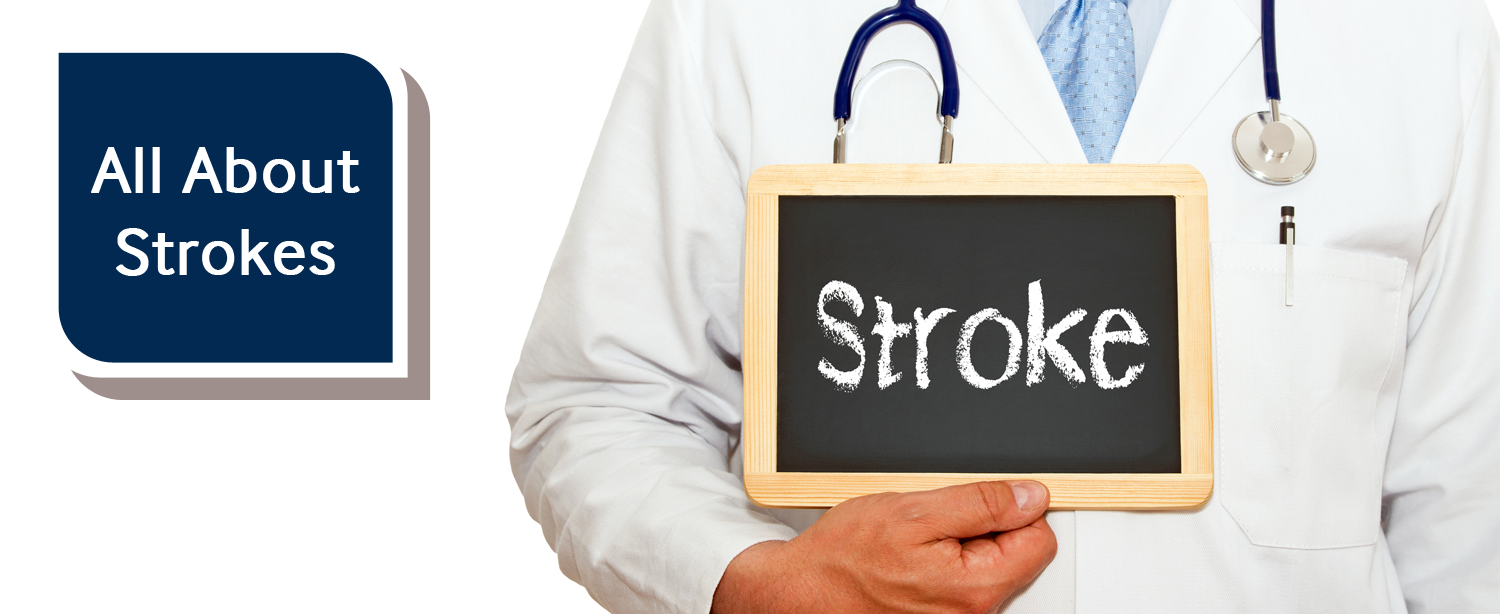A stroke is a brain attack which occurs when blood flow to an area of the brain is cut off. A stroke is also called a cerebrovascular accident, CVA, or a “brain attack.”
When this happens, brain cells are deprived of oxygen and they stop working. This loss of blood supply can be ischemic because of lack of blood flow, or hemorrhagic because of bleeding into brain tissue.
A stroke is a medical emergency because strokes can lead to death or permanent disability. How a person is affected by stroke depends on where the stroke occurs in the brain and how much the brain is damaged. For someone it may be a temporary weakness of an arm or leg and for someone permanent paralysis of one side of their body.
The types of strokes include:
- Ischemic stroke (part of the brain loses blood flow)
- Hemorrhagic stroke (bleeding occurs within the brain)
Listed below are stroke symptoms to be watchful and proactive about:
- Trouble with speaking and understanding. One may experience confusion, slurring of words or have difficulty in understanding speech.
- Paralysis or numbness of the face, arm or leg.
- Trouble with seeing in one or both eyes, blurred or blackened vision.
- Headache. A sudden, severe headache, which may be accompanied by vomiting, dizziness or altered consciousness.
- Trouble with walking accompanied by dizziness, loss of balance or loss of coordination.
Seek immediate medical attention if you notice any signs or symptoms of a stroke, even if they seem to fluctuate or disappear.
Think “FAST” and do the following:
- Face. Ask the person to smile. Does one side of the face droop?
- Arms. Ask the person to raise both arms. Does one arm drift downward? Or is one arm unable to raise up?
- Speech. Ask the person to repeat a simple phrase. Is his or her speech slurred or strange?
- Time. If you observe any of these signs, call for the medical emergency services. Don’t wait to see if the symptoms go away. Every minute counts. The longer a stroke goes untreated, the greater the potential for brain damage and disability.
Some factors which can increase your risk of a stroke:
- Being overweight or obese
- Physical inactivity
- Heavy or binge drinking
- Use of illicit drugs such as cocaine and methamphetamines
- High blood pressure
- Cigarette smoking or exposure to secondhand smoke.
- High cholesterol or Diabetes
- Cardiovascular disease, including heart failure, heart defects, heart infection or abnormal heart rhythm.
- Personal or family history of stroke or heart attack
Did you know?
- From the onset of symptoms, there is only a 3 to 4 1/2 hour window to use clot-busting drugs (thrombolytics) to try to restore blood supply to the affected part of the brain.
In worst scenarios below are some of the complications stroke may cause:
- Paralysis or loss of muscle movement. You may become paralyzed on one side of your body, or lose control of certain muscles, such as those on one side of your face or one arm.
- Difficulty in talking or swallowing. A stroke may cause you to have less control over the way the muscles in your mouth and throat move, making it difficult for you to talk clearly (dysarthria), swallow or eat (dysphagia).
- Memory loss or thinking difficulties. Many people who have had strokes experience some memory loss or have difficulty thinking, making judgments or understanding concepts.
- Emotional problems. People who have had strokes may have more difficulty controlling their emotions, or they may develop depression.
- Pain. People who have had strokes may have pain, numbness or other strange sensations in parts of their bodies affected by stroke.
The success of treating these complications varies from person to person.
Do you know someone suffering from stroke? For more details and treatment do visit the below link of our Centre for Neurosciences:


